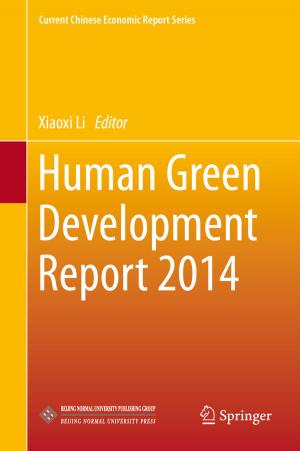Nanobioelectrochemistry
From Implantable Biosensors to Green Power Generation
Nonfiction, Science & Nature, Technology, Nanotechnology, Science, Chemistry, Physical & Theoretical| Author: | ISBN: | 9783642292507 | |
| Publisher: | Springer Berlin Heidelberg | Publication: | August 1, 2012 |
| Imprint: | Springer | Language: | English |
| Author: | |
| ISBN: | 9783642292507 |
| Publisher: | Springer Berlin Heidelberg |
| Publication: | August 1, 2012 |
| Imprint: | Springer |
| Language: | English |
Nanobioelectrochemistry covers the modern aspects of bioelectrochemistry, nanoscience and materials science. The combination of nanostructured materials and biological molecules enables the development of biodevices capable to detect specific substances. Furthermore, by using the bioelectrochemistry approach, the interaction between bio-systems and nanostructured materials can be studied at the molecular level, where several mechanisms of molecular behavior are elucidate from redox reactions. The combination of biological molecules and novel nanomaterials components is of great importance in the process of developing new nanoscale devices for future biological, medical and electronic applications. This book describes some of the different electrochemical techniques that can be used to study new strategies for patterning electrode surfaces with enzymes, organelles, cells and biomimetic systems. Also, it focuses on how enzymes and microorganisms can be used as biological catalysts in fuel cells for green power generation. By bringing together these different aspects of nanobioelectrochemistry, this book provides a valuable source of information for many students and scientists.
Nanobioelectrochemistry covers the modern aspects of bioelectrochemistry, nanoscience and materials science. The combination of nanostructured materials and biological molecules enables the development of biodevices capable to detect specific substances. Furthermore, by using the bioelectrochemistry approach, the interaction between bio-systems and nanostructured materials can be studied at the molecular level, where several mechanisms of molecular behavior are elucidate from redox reactions. The combination of biological molecules and novel nanomaterials components is of great importance in the process of developing new nanoscale devices for future biological, medical and electronic applications. This book describes some of the different electrochemical techniques that can be used to study new strategies for patterning electrode surfaces with enzymes, organelles, cells and biomimetic systems. Also, it focuses on how enzymes and microorganisms can be used as biological catalysts in fuel cells for green power generation. By bringing together these different aspects of nanobioelectrochemistry, this book provides a valuable source of information for many students and scientists.















